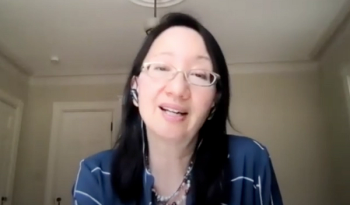
On Finance: One Practice Brings Its Claims Processing In-House
Practice takes back control of administrative functions
With 400 new patients per month, not to mention existing patients, an off-kilter billing and administrative system spells bad news for any thriving medical practice, especially for the practice manager in charge.
For Diagnostic Neurology, a four-physician neurology practice in Park Ridge, Ill., the reimbursement process was so slow, the practice was losing money-in delayed payments and trying to identify, fix and resubmit claims. At a price tag of $100,000 per year for continued poor service coupled with the growing fear of HIPAA compliance, management began to assess the value of an outsourcing company altogether.
After a quick review of its outsourcing company-which revealed the company routinely let payments lag, made little effort to find dead claims, and was barely responsive to overall customer needs -the practice took back control by bringing this function back in-house.
This dramatic change began in 2003, when Diagnostic Neurology began to manage its administrative functions-data entry, mailing of bills & statements, electronic filing, insurance, and follow- up phone calls, among other tasks-instead of using its outsourcing company. Part of this new decision, however, would require some assistance from a claims clearinghouse company to electronically mange claims and assist with other claims-related functions.
Following a comprehensive selection process of five claims clearinghouses, Diagnostic Neurology hired Gateway EDI, a midsize claims clearinghouse in St. Louis.
Results
Immediately, the new system enabled Diagnostic Neurology to eliminate one employee, saving the practice a full-time salary and related benefits.
Next, the process for electronic submissions improved. Rather than six weeks for claims turnaround, the practice receives electronic remits within two to four weeks. And instead of letting lost claims linger, this new system electronically flags claims that have been stagnate for three weeks or longer. Each claim is evaluated for more than 15 different data before it is submitted. This new functionality enables the practice to identify claims errors within days, rather than weeks, and electronically, versus the old paper system, saving overall time and money.
HIPAA implementation is also simpler. Now, when a claim is rejected, it is done so giving the practice the HIPAA-specific reason.
There is also a new focus on client support and customer service. If practice claims are submitted without error, the claims clearinghouse will submit the claim within 24 hours. Training and support is ongoing, which includes monthly seminars reflecting both industry and software changes to assure the practice is aware of any new change.
Financially, the new system has enabled the practice to achieve $100,000 savings in the first year, with at least $80,000 per year since switching to a new process, after amortizing new equipment and service contracts. And although unable to calculate additional revenue being recouped, the practice expects additional savings by capturing money, which was otherwise lost in a stagnant situation.
Administratively, the practice experiences a greater level of overall control and confidence. Rather than guess, the practice can predict exact revenue stream and by source. Equally important is the practice’s ability to identify sources of delays, if any, and then determine the source of the logjam: insurer, patient, or data entry functionality.
Sherrie Miller is practice manager, Diagnostic Neurology Ltd.
Newsletter
Get the latest industry news, event updates, and more from Managed healthcare Executive.























